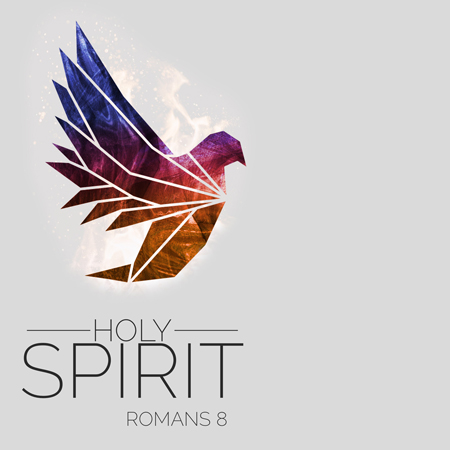The Holy Spirit and the Trinity has been challenged since the third and fourth century through the error of Modalism based around the teaching of Sabellius.
Some resources referenced: What is the Trinity R C Sproul; The Trinity and the Kingdom: the Doctrine of God – Jurgen Moltmann; Understanding Christian Theology – Zuck and Swindoll; SMH article by investigative journalists Kate McClymont and Julie Power July 20; article Israel Folau’s problem with the Trinity: Tom Richards is a minister in the Westminster Presbyterian Church.
Ephesians 3:14–21 (NLT) 14 When I think of all this, I fall to my knees and pray to the Father, 15 the Creator of everything in heaven and on earth. 16 I pray that from his glorious, unlimited resources he will empower you with inner strength through his Spirit. 17 Then Christ will make his home in your hearts as you trust in him. Your roots will grow down into God’s love and keep you strong. 18 And may you have the power to understand, as all God’s people should, how wide, how long, how high, and how deep his love is. 19 May you experience the love of Christ, though it is too great to understand fully. Then you will be made complete with all the fullness of life and power that comes from God. 20 Now all glory to God, who is able, through his mighty power at work within us, to accomplish infinitely more than we might ask or think. 21 Glory to him in the church and in Christ Jesus through all generations forever and ever! Amen.
Central to the Christian story is the true story about God and the world, from creation through to the fulfillment of God’s redemptive plan.
Integral to this is relationship, particularly relationship between God and humanity – brokenness – we understand humanity, but how do we understand God, particularly in terms of God Father, God Son, God HS.
We’ve got a vague sense that the trinity matters, but we’re not sure why.
1689 Baptist: In this divine and infinite Being there are three subsistences, the Father, the Word or Son, and Holy Spirit, of one substance, power, and eternity, each having the whole divine essence, yet the essence undivided: the Father is of none, neither begotten nor proceeding; the Son is eternally begotten of the Father; the Holy Spirit proceeding from the Father and the Son; all infinite, without beginning, therefore but one God; … which doctrine of the Trinity is the foundation of all our communion with God, and comfortable dependence on him.
Four momentous trinitarian events – the Creation the Incarnation Pentecost The Gospel
Sometimes it’s easier to say what we don’t believe than what we believe:
- Orthodox Trinitarianism rejects tritheism which believes that the doctrine of the trinity means that Christians believe in three Gods which has been rejected by the church throughout history.
- Orthodox Trinitarianism rejects modalism which believes that Father, Son, and Holy Spirit are different names for the same God acting in different roles or manifestations (like well-intentioned but misguided “water, vapor, ice” analogy). (as Sabellius did in the third century) – [God Father Son Holy Spirit on sidelines]
- Orthodox Trinitarianism rejects Arianism which denies the full deity of Christ – Council of Nicea (325 ad), when assembled bishops outlawed the claim of Arius that the Son was not eternal but was created by God, who thereby became his Father.
These become more current when last week investigative journalists Kate McClymont and Julie Power writing in Sydney Morning Herald, wrote that Israel Folau’s group the Truth of Jesus Christ church and the associated Oneness Pentecostalism were far from mainstream Christianity.
Israel Folau’s problem with the Trinity: Tom Richards is a minister in the Westminster Presbyterian Church.
Many of this congregation were concerned, especially when the Christian lobby group ACL were representing Folau in his grievances with Rugby Australia, raising in excess of $2m for his defence. [cf Bishop Jakes]
So how is Folau and Oneness Pentecostalism far from mainstream Christianity? They do not believe in the Trinity (salvation by works/baptismal regeneration/receive HS w laying on of hands).
Back in January 2018, Folau replied to a tweet saying: “Jesus Christ was the vessel of God, God is a spirit. He formed the body of Jesus Christ and was in him. And the holy spirit is the characteristics or functions of God. But it’s not 3 or the Trinity but just him alone.”
This is an expression of what is called modalism; a teaching that is nearly as old as the church itself and rejects the Trinity as expressed in the Athanasian and Nicene Creeds.

